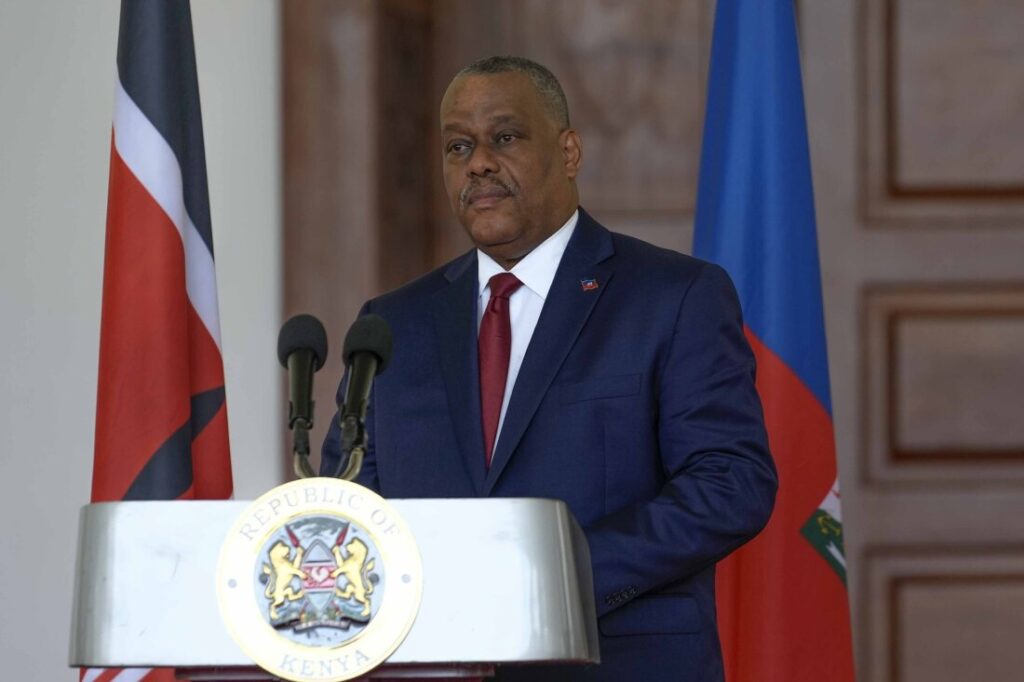Haiti, a nation long plagued by political instability and violence, has plunged deeper into crisis with the removal of interim Prime Minister Dr. Garry Conille on November 10, 2024. The decision by the Transitional Presidential Council (TPC) to oust Conille comes amidst escalating gang violence, corruption scandals, and questions about the council’s own integrity.
The Removal of Garry Conille
Dr. Garry Conille, who was appointed as interim Prime Minister to help stabilize Haiti and prepare for elections, was removed from his position by the TPC. The council, established in April 2024 to guide Haiti through its transitional period, cited several reasons for his dismissal:
- Political Infighting: The TPC itself has been mired in internal conflicts, making it difficult for Conille to govern effectively. These disputes weakened the council’s ability to function cohesively and ultimately led to the decision to replace him.
- Corruption Accusations: Allegations of corruption against three members of the TPC—Smith Augustin, Emmanuel Vertilaire, and Louis Gérald Gilles—further complicated the political climate. These members allegedly demanded over $750,000 from the director of the National Bank of Credit to secure his position. The scandal undermined the council’s credibility and strained its relationship with Conille.
- Security Challenges: With gang violence spiraling out of control, displacing over 20,000 people in Port-au-Prince alone, the TPC believed new leadership was needed to address the crisis more effectively.
- Legal Controversies: Many locals have deemed the decree to remove Conille as illegal, accusing the council of overstepping its authority. This sentiment was amplified by the involvement of council members with tainted reputations.
A Questionable Council
The TPC’s integrity has come under scrutiny following accusations of bribery involving three of its members. The anti-corruption agency’s October 2024 investigation revealed that Augustin, Vertilaire, and Gilles allegedly demanded substantial bribes, raising serious concerns about the council’s ability to lead Haiti through its transitional period.
Conille’s removal is seen by some as a potential act of retaliation, as his administration’s stance against corruption may have clashed with the interests of these members.
How Did Haiti Get Here?
Why Was Jovenel Moïse Assassinated? Moïse’s presidency was mired in controversy and opposition. Key factors leading to his assassination include:
- Disputed Term Length: Moïse faced accusations of overstaying his term, with critics arguing his presidency legally ended in February 2021. Moïse insisted he was entitled to remain in office until February 2022 due to election delays.
- Governance Issues: His administration was accused of corruption, authoritarianism, and undermining democratic institutions by ruling via decree after dissolving Parliament in 2020.
- Economic and Social Turmoil: Widespread poverty, unemployment, and inflation fueled public discontent.
- Powerful Enemies: Moïse’s crackdown on corruption and efforts to reform Haiti’s oligarch-dominated economy angered many influential figures, including politicians and business elites.
These factors created a volatile environment, and on the night of July 7, 2021, armed assassins stormed Moïse’s residence, killing him and injuring his wife. The assassination plunged Haiti into chaos, deepening political instability and eroding public trust in its leaders.
The Rise of Gang Violence
As the political vacuum widened, armed gangs capitalized on the lack of governance to expand their influence, turning Haiti into a warzone. Major gangs include:
- G9 Family and Allies (G9)
- Leader: Jimmy “Barbecue” Chérizier, a former police officer.
- Description: A coalition of nine gangs controlling areas like Delmas and Pétion-Ville.
- G-Pèp
- Leader: Jean Pierre Gabriel (“Ti Gabriel”)
- Description: Operating in Cité Soleil, with suspected ties to opposition parties and business interests.
- 400 Mawozo
- Leader: Vitel’Homme Innocent
- Description: Known for kidnappings and extortion, this gang operates in Croix-des-Bouquets and Pétion-Ville.
- Gran Grif
- Leader: Luckson Elan
- Description: Active in Artibonite, responsible for the Pont-Sondé massacre that claimed over 70 lives.
- Chen Mechan
- Description: Operating in Martissant, this gang has terrorized communities with unchecked violence.
These gangs have displaced tens of thousands and caused over 3,661 deaths in 2024 alone, according to the UN.
Leadership in Turmoil
The removal of Dr. Garry Conille as interim Prime Minister by the Transitional Presidential Council (TPC) reflects Haiti’s governance struggles. Political infighting, corruption allegations, and security challenges undercut Conille’s tenure, leading to his replacement by Alix Didier Fils-Aimé.
While Fils-Aimé’s background in business and technology brings promise, questions remain about whether he can navigate Haiti’s complex crisis effectively.
International Response
Several nations have stepped in to support Haiti:
- Kenya: Leading a UN-backed police mission.
- Benin: Pledging to provide 2,000 soldiers to bolster the mission’s efforts.
- Antigua and Barbuda: Participating in the mission with a contingent of personnel.
- Jamaica, The Bahamas, and others: Contributing personnel.
- United States: Providing financial aid and logistical support without deploying troops. The United States has opted not to deploy its own military personnel to Haiti, choosing instead to support the Multinational Security Support Mission (MSSM) through financial aid, equipment, and logistical assistance.
The Path Forward
Haiti’s challenges are deeply rooted in political instability, systemic corruption, and the unchecked rise of gang power. To address this crisis, Haiti needs:
- Effective Leadership: Leaders who can unify factions and restore governance.
- Robust International Support: Coordinated global efforts to dismantle gangs and rebuild institutions.
- A Commitment to Justice: Accountability for corruption and crimes against civilians.
As Haiti faces one of its darkest chapters, the hope lies in bold action, both domestically and internationally, to restore hope and stability for its people.
